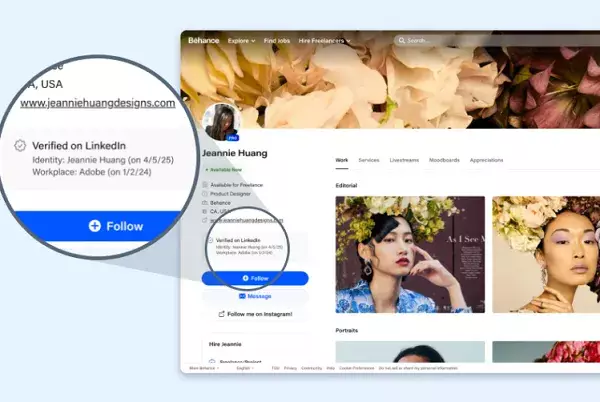In an era where online identities are often a blend of authenticity and deception, LinkedIn has taken a commendable step towards enhancing the reliability of professional connections. By enabling third-party platforms to display its ID verification markers, LinkedIn is not just simplifying the verification process; it’s raising the bar for what it means to be “verified” in a professional context. The implications of this move extend beyond individual profiles; they set a precedent for how digital interactions can cultivate trust and transparency in networking.
The advent of LinkedIn’s ID verification process, initially launched in 2023, showcased an understanding of the unique challenges professionals face in the digital arena. Unlike conventional celebrity checkmarks on social media, LinkedIn’s approach emphasizes the verification of real individuals — creating a stark difference in how we interpret credibility online. With over 80 million members participating in the voluntary ID confirmation, it’s clear that a significant portion of the LinkedIn population values the integrity this verification offers.
Strategic Partnerships: The Adobe Collaboration
The partnership with Adobe represents a significant evolution in how digital verification can be applied across platforms. By integrating LinkedIn’s verification into its Content Authenticity app and the Behance portfolio, Adobe removes the burdensome need to develop its own verification system while enhancing LinkedIn’s utility. This collaboration is a brilliant strategy; it not only amplifies the reach of LinkedIn’s verification but also underscores its practical applications in the creative industry.
Creators who have successfully navigated LinkedIn’s ID confirmation will be able to proudly display a “Verified on LinkedIn” badge on their Adobe profiles. This not only adds a layer of social proof but also distinguishes verified professionals from the rest, which is crucial in a crowded and competitive environment. With this initiative, creators will have consolidated ownership of their work combined with the assurance that their professional identity aligns with their creative output.
Combatting the Dark Side of Digital Identity
The threat of spam, bot accounts, and impersonation looms large over online platforms. Anonymity, while a crucial aspect of freedom of expression, can also provide a shield for malicious behavior. Through its ID verification initiatives, LinkedIn is addressing these issues head-on, promoting a more responsible environment where users are liable for their actions. This is particularly vital in professional settings, where reputations are built over time and can have significant consequences based on interactions.
Moreover, the integration of a robust verification system could very well serve as a deterrent against bad actors who exploit anonymity to engage in disruptive behavior. As professionals increasingly rely on online platforms for networking, job opportunities, and collaboration, LinkedIn’s proactive approach could significantly diminish the prevalence of false identities, leading to a more secure digital landscape.
A New Paradigm for Verification in Social Media
While the push for universal verification has been ongoing, it has often met with resistance due to privacy concerns. LinkedIn’s innovative use of third-party partnerships suggests a feasible pathway to establishing identity verification without necessitating regulatory mandates. By promoting a voluntary and constructive system, LinkedIn underscores the importance of trust, encouraging users to engage more authentically.
As society grapples with the rising sophistication of AI-generated content and the risks associated with misinformation, LinkedIn’s layered approach to identity verification and digital ownership is a response that resonates with the current zeitgeist. It hints at a larger movement towards more accountable digital interactions, paving the way for a future in which social media platforms can offer their users not only a place to connect but also a secure and trustworthy environment to do so.
In this context, the collaboration with Adobe to enhance digital ownership presents a promising avenue for the next generation of online identity assurances. While traditional forms of verification may falter in the face of technological advancements, initiatives like LinkedIn’s may lay the groundwork for a more secure and accountable digital landscape.


Leave a Reply